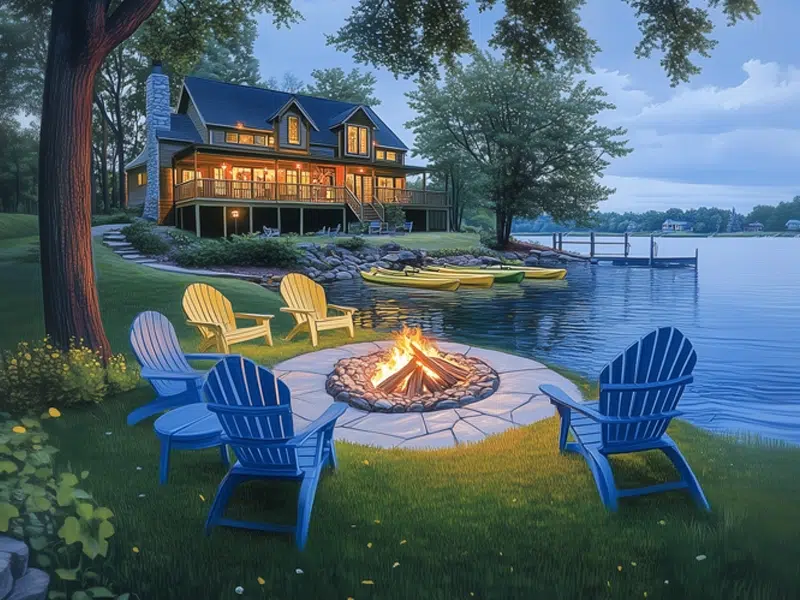New Mexico Airbnb Laws Now Include Permit Registration, Noise Ordinance Regulations, and More
New Mexico has long been a popular tourist destination, and with that comes the need for Airbnb laws to better regulate the unique short-term rentals in the state. Here’s what short-term rental owners need to know.
If you have questions about short-term rentals in New Mexico, contact Proper Insurance. Our agents are experts in the vacation rental industry. Call 888-631-6680 today.

Albuquerque, New Mexico
Enforces New Laws and Regulations
In 2020, the City of Albuquerque decided to enact ordinance 0-20-30, known as the “Short Term Rental Ordinance. The ordinance established a permitting fee and other amendments. In April 2021, the Short-Term Rental Ordinance went into effect, and they are now receiving applications for permits. To learn more, visit the City of Albuquerque’s website or visit their extensive FAQ page to answer many questions.
The current regulations are in place:
- Maximum Guests: Two adults per room are allowed.
- Business Registration and Tax ID: Hots need to obtain these from the state before registering.
- Good Neighbor Agreement: Post the agreement inside the unit to inform guests of applicable City Ordinances such as noise, litter and parking.
- Proof of Insurance: Maintain short-term rental insurance coverage in the minimum amount of $250,000 to insure against damages to guest(s), damages caused by guests, or damages to other persons (like neighbors).
- Gatherings: May not exceed two times the overnight occupancy or 20 persons, whichever is less.
Bernalillo, New Mexico
Enforces New Laws and Regulations
As of February 2024, Bernalillo County, New Mexico, has regulations in place for short-term rentals (STRs), defined as any rental property used for less than 30 days. These regulations aim to ensure responsible operations of STRs while addressing concerns like tax collection and neighborhood peace. To learn more about the current regulations in place please visit the city of Albuquerque website.
The current regulations are in place:
- Permit: Hosts must obtain a Short-Term Rental (STR) permit and renew it annually. The cost is $120 for the first year and $90 after that.
- Taxes: Hosts must pay Lodgers’ Tax and comply with other applicable taxes.
- Occupancy: Maximum occupancy for sleeping is 2 people per bedroom plus two. The limit on gatherings is two times the maximum overnight occupancy, but no more than 20.
- “Good Neighbor Agreement”: Posted inside of each STR informing guests of City Ordinances such as noise, littler and parking.
Elephant Butte, New Mexico
Regulations for Short-term Rentals
The City of Elephant Butte has implemented Ordinance No. 202 to help maintain the benefit of short-term rentals for the community. This is intended to promote the health, safety and welfare of the city and its people. Please check the City of Elephant Butte’s website for updated information as it is ever changing.
The current regulations are in place:
- Permit: A short-term residential rental permit is required. If a host is renting their property for less than 30 days, they need a permit.
- Parking: Based upon the max number of occupants but must have at least one-off street parking space.
- Point of Contact: The host must provide a contact number that can be reached 24/7.
- Inspections: Due at the time of the application, and every two years thereafter, an inspection is conducted by the City Land Use Office and Fire Department.
- Safety: The inspection will check for an ABC-type fire extinguisher(s) in the appropriate places, smoke detectors working around the house, clear exists, signage on the properties address in case of emergencies and more.
- Insurance: The city recommends that all owners purchase short-term rental insurance. Proper Insurance is the nation’s leading short-term vacation rental insurance provider, with the most comprehensive policy on the market providing coverage for your property, revenue, and business liability.
- Signage: Hosts, owners and property managers must post a clear and legible notice for guests that contains the following information:
- A copy of the short-term rental permit
- The name of the managing agency, agent, property manager and/or local contact person for the unit
- The maximum number of occupants allowed
- Number of vehicles allowed at the unit
- Information on how to dispose of trash and refuge
- Notice of the violations if there is disturbance
- Notice of noise provisions
- The address of the property
- Notice of leash laws in effect
Santa Fe, New Mexico
Updates Airbnb Laws to Boost Local Economy
Santa Fe, New Mexico, joins the many other cities enacting Airbnb laws to regulate the growing short-term rental industry. The key addition to the city’s regulations is the requirement for short-term rentals to register with the city. Some of the other requirements are:
- An owner of a short-term rental unit must have a city-issued business license and either a short-term rental permit or a short-term rental registration or a short-term rental registration
- A city-issued permit or registration number must be included in all advertising of a short-term rental unit, including listings on a host platform.
- A short-term rental unit must have a local operator who is available twenty-four (24) hours per day, seven (7) days per week, to respond to complaints regarding the operation or occupancy of the short-term rental unit. The operator must be accessible by telephone and able to be physically present at the short-term rental unit within one (1) hour of being contacted.
- A short-term rental unit must meet all applicable building, fire, and safety codes, and all toilets, faucets, and shower heads must meet the water conservation requirements described in Section 25-2.6 SFCC 1987 SFCC 1987
- The owner shall pay all applicable local, state, and federal taxes, including lodgers’ tax, gross receipts tax, and income tax.
- Noise or other disturbance emitted from a short-term rental unit is prohibited after 10:00 p.m., including noise or disturbances emitted from decks, portals, porches, balconies, or patios. Noise monitoring equipment is encouraged.
The City of Santa Fe has capped the number of permits granted at 1,000 in order to maintain the “character of the city’s residential neighborhoods.” The overall goal of the city is to promote individual-owned short-term rentals over large speculators in order to increase local wealth and maintain a certain level of long-term rentals for resident use.
Additional information, including the permit application process, can be found on the Santa Fe City Website.
Taos, New Mexico
Updated Laws and Regulations
The City of Taos has updated their requirements for operating a short-term rental (STR). Ordinance No. 22-12 defines terms within the industry, explains the rules, explains how to apply for a permit, renew a permit, and what the violations are in case any rules are broken. To stay current on updated regulations, please check the City of Taos’ website.
The current laws and regulations are in place:
- Permit: Hosts must obtain a permit and be renewed annually.
- Zoning: STRs are prohibited in the historic district, Historic Hotel Overlay Zones of the Town in Taos and in the Central Business District. STRs are only permitted in the following Zoning Districts: RA-20, RA-10, RA-6, RA, R-1, R-2, R-3, R-4, R-6, R-14, C-1 and C-2.
- Safety: Working smoke detector, fire extinguisher, and other applicable safety features.
- Guest Packets: STRs must provide a packet to their guests with the following information:
- Contact information for the host and local responsible party
- Safety Information
- Town rules and restrictions
- Taxes: There is a 5% Lodger’s Tax on reservations of fewer than 30 nights. There is also a Gross Receipt Tax on businesses operating in Taos. Hosts are responsible for those taxes and any others that are associated with short-term rentals.
Quote Your Short-Term Vacation Rental Today
Interested in a policy to protect you and your business from liability and damage claims? Proper Insurance leads the Nation in short-term rental insurance, with over 100,000 policies written in all 50 states. Backed by Lloyd’s of London and exclusive endorsements from vacation rental leaders such as HomeAway and Vrbo, Proper Insurance is built on world-class insurance coverage. Proper’s policy covers vacation homes, townhouses, condos, duplexes, cabins, cottages, apartments, and more. With expert vacation rental underwriters, we can tailor a policy specific to your short-term rental property.
Please note: The information provided is intended as a guide and may not be comprehensive or current. Regulations may change and could vary by area or situation. Always consult local authorities or a legal professional to ensure you have the most accurate information for your short-term rental property.



